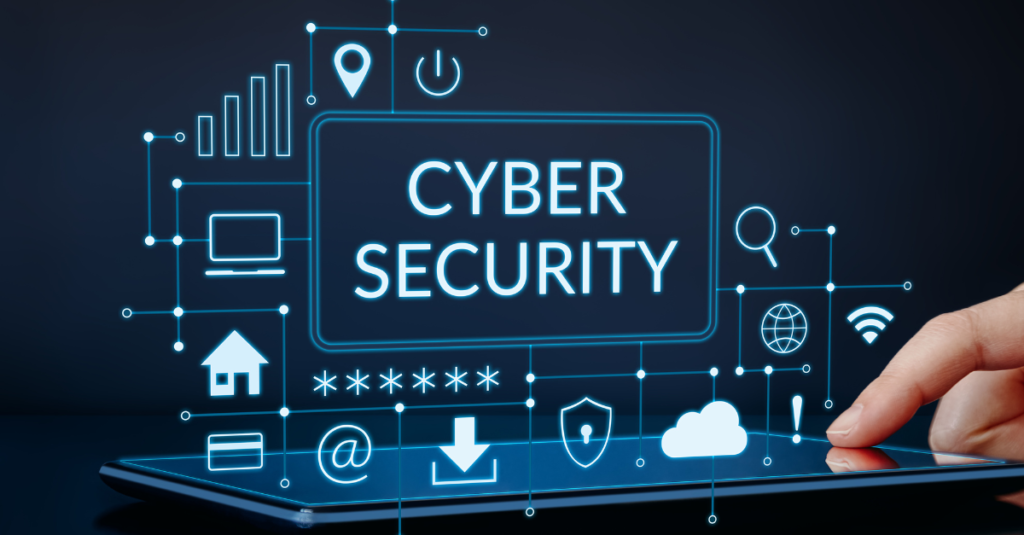In Nigeria, businesses are the backbone of economic growth and need cybersecurity framework due to increasingly becoming targets of cyberattacks. Unlike large organizations, many Nigerian companies assume they are less vulnerable to cyber threats. This misconception, coupled with challenges such as limited access to finance and modern technology, leaves them exposed to a wide range of cyberattacks that negatively impact their operations.
As digital transformation accelerates in Nigeria, businesses must prioritize the development of robust cybersecurity frameworks to safeguard sensitive data and business assets. Without a well-structured cybersecurity plan, companies are at risk of financial loss, reputational damage, and even legal consequences due to data breaches. Sebastine, a seasoned Information Security Engineer specializing in safeguarding digital assets in Nigeria, particularly in Abuja, outlines how Nigerian businesses can protect themselves by building an effective cybersecurity framework.
The Need for Cybersecurity Among Nigerian Businesses
Despite the numerous challenges businesses face, many still believe that cyberattacks primarily target larger corporations. However, cybercriminals often exploit vulnerabilities in smaller businesses precisely because they lack sophisticated security measures. With the increasing reliance on digital platforms, the risk of cyberattacks on Nigerian companies has grown significantly.
To mitigate these risks, Nigerian Businesses can adopt a cybersecurity framework tailored to their specific needs. Sebastine recommends a cost-effective strategy based on established global standards like the National Institute of Standards and Technology (NIST) Cybersecurity Framework. Although the NIST framework was designed to protect critical infrastructure in the U.S., it provides an excellent foundation for enhancing security in businesses worldwide, including Nigerian companies.
Building a Cybersecurity Framework for Nigerian Companies: A Step-by-Step Guide
- Conduct a Risk Assessment The first step in building a cybersecurity framework is understanding your company’s vulnerabilities. A thorough risk assessment identifies weak points in your network and IT infrastructure. Nigerian businesses often overlook this step, which leaves them more exposed to attacks. Regular risk assessments reveal critical areas requiring attention and guide the development of security measures.
- Develop Clear Cybersecurity Policies A comprehensive cybersecurity framework requires well-defined policies that outline how employees should handle data, manage passwords, use devices, and report incidents. These policies must align with Nigerian regulations, such as the Nigeria Data Protection Regulation (NDPR), and should be communicated to all employees to ensure compliance.
- Implement Multi-Factor Authentication (MFA) Password-related breaches are a common threat to Nigerian companies. Implementing MFA adds an extra layer of security by requiring users to verify their identity using more than one method. This is particularly important for protecting sensitive company data and administrative accounts.
- Invest in Network Security Tools Securing your network is crucial for defending against external threats. Nigerian businesses should invest in firewalls, intrusion detection systems (IDS), and intrusion prevention systems (IPS) to protect their networks. For companies in regions like Abuja, where cyberattacks are becoming more frequent, advanced tools such as Security Information and Event Management (SIEM) systems are essential for real-time monitoring and threat detection.
- Continuous Monitoring and Threat Detection Cyberattacks can happen at any time, so continuous monitoring is crucial. Automated threat detection systems should be part of your cybersecurity strategy. These systems monitor network activity and alert you to suspicious behavior. Businesses that lack the resources for an in-house security team may also consider partnering with Managed Security Service Providers (MSSP) for round-the-clock monitoring.
- Employee Training and Awareness Human error is one of the leading causes of security breaches. Employees must be trained to recognize phishing attempts, securely manage passwords, and report any suspicious activity immediately. Regular training sessions ensure that cybersecurity best practices become part of the company’s culture.
- Regular Software Updates Outdated software is a major vulnerability. Nigerian companies must ensure that all systems are updated regularly with the latest security patches, including operating systems, anti-virus software, and cloud services.
- Prepare an Incident Response Plan Even with the best security measures in place, cyberattacks can still occur. Having an incident response plan enables businesses to minimize the damage caused by breaches. The plan should clearly define roles, communication protocols, and recovery procedures in the event of an attack.
- Ensure Data Backup and Recovery Data loss is a common consequence of cyberattacks. Businesses must regularly back up critical data and ensure that these backups are stored securely. This minimizes disruptions and allows for a swift recovery in the event of a ransomware attack or system failure.
- Collaborate with Cybersecurity Experts Many Nigerian companies lack the internal expertise required to manage their cybersecurity. Collaborating with certified professionals such as Information Security Engineers or Chief Information Security Officers (CISOs) ensures that businesses have access to tailored cybersecurity solutions that meet their specific needs.
Recommended Cybersecurity Practices for Nigerian Companies
- Antivirus Software: Install antivirus tools that can detect and remove malware, ransomware, and spyware before they cause damage.
- Penetration Testing: Conduct regular penetration tests to identify vulnerabilities that hackers could exploit in your system.
- Automated Threat Detection: Use automated monitoring systems to continuously scan your network for suspicious activity.
- User Behavior Analysis: Monitoring employee behavior helps detect unusual activity that may indicate a security breach.
- Log Monitoring: Maintain detailed logs of all network activity to quickly detect and respond to potential threats.
Overcoming Challenges: A Simple Cybersecurity Framework for Nigerian Businesses
While many cybersecurity frameworks are expensive and complex, Sebastine recommends a simpler, cost-effective solution specifically designed for Nigerian businesses. The proposed framework focuses on affordable threat detection, employee training, and data protection strategies that are easy to implement.
By adopting this framework, Nigerian companies can reduce their risk of cyberattacks, protect their data, and contribute to the growth of the nation’s digital economy.

